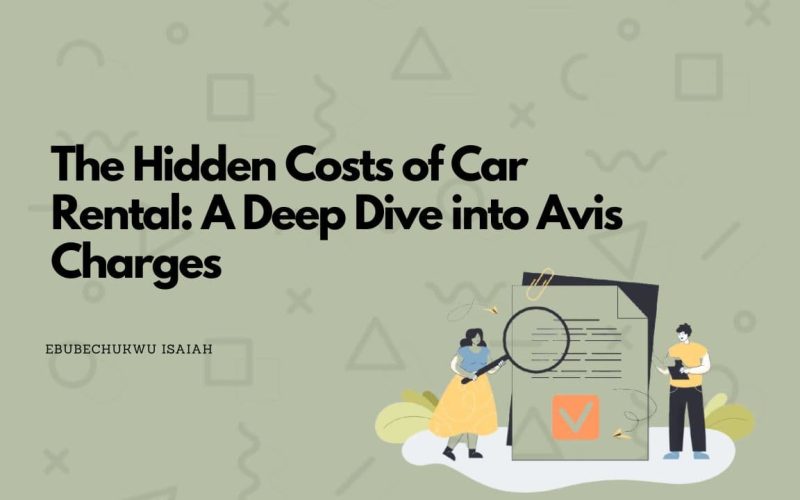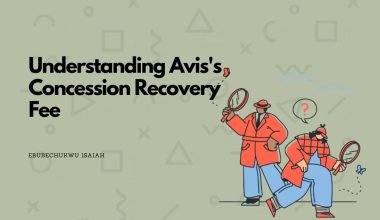Have you ever stood at an Avis counter, staring at your final bill in confusion? I certainly have.
After years of frequent travel and countless rental experiences, I’ve learned to navigate the complex web of Avis charges – sometimes the hard way.
Base Rates: The Tip of the Iceberg
The daily rate you see advertised online is just the beginning of your rental journey. When I first started renting cars, I assumed this would be the bulk of my expense. How wrong I was.
Your base rate varies significantly depending on several factors. Location plays a crucial role – airport rentals typically cost 10-30% more than off-airport locations due to additional fees and taxes.
Weekend rates often differ from weekday rates, and seasonal fluctuations can cause prices to surge during peak travel periods.
Pro tip: I’ve found that booking at least two weeks in advance can save you up to 30% on your base rate.
Additionally, longer rental periods often qualify for weekly or monthly discounts, sometimes reducing your daily rate by as much as 20%.
The Insurance Maze: Making Informed Decisions
Let’s tackle the most confusing aspect of car rental charges – insurance options. You’ll face several choices at the counter, and making the wrong decision could cost you dearly.
Here are the main insurance options Avis offers:
- Loss Damage Waiver (LDW): $29.99-49.99 per day
- Extended Protection (EP): $13.95-17.95 per day
- Personal Accident Insurance (PAI): $5.95-7.95 per day
- Personal Effects Protection (PEP): $2.95-4.95 per day
Before accepting any of these, check your personal auto insurance and credit card coverage.
I learned this lesson when I discovered my credit card already provided collision coverage, saving me nearly $200 on a week-long rental.
Your existing auto insurance often extends to rental cars, but there’s a catch. If you need to make a claim, it could affect your personal insurance rates.
That’s why some travelers opt for the rental company’s coverage despite having personal insurance.
Additional Fees: The Silent Budget Killers
Remember my first cross-country road trip? I was shocked to discover nearly $200 in additional fees on my final bill. Here’s what you need to watch out for:
Vehicle License Fee: $2-5 per day This mandatory fee covers the cost of licensing and registering the vehicle. It varies by state and can’t be avoided.
Energy Surcharge: $0.50-2 per day Introduced during periods of high fuel prices, this fee has become standard at most locations.
Customer Facility Charge: $3-10 per day Common at airports, this fee funds the rental car facility’s construction and maintenance.
Additional Driver Fee: $13-15 per day Planning to share driving duties? Unless your additional driver is your spouse or domestic partner in certain states, you’ll pay for this privilege.
Then there are the location-specific fees:
- Airport Concession Recovery Fee: 11.11% of the total rental
- Tourism Fee: Varies by city
- State and Local Taxes: Can add 15-20% to your total
Fuel Policies and Charges
You have three options for fuel:
- Prepay for a full tank (usually slightly below local market rates)
- Return the car full
- Let Avis refuel (at a premium rate of $9-13 per gallon)
I always choose option 2. While prepaying might seem convenient, you’re paying for a full tank regardless of how much you use. Unless you’re certain you’ll return the car running on fumes, filling up yourself is usually the most economical choice.
Going the Extra Mile: Additional Services and Their Costs
GPS Navigation: $16.99 per day With smartphones being ubiquitous, I rarely recommend this unless you’re traveling internationally without data coverage.
Satellite Radio: $7.99 per day A luxury that quickly adds up on longer rentals.
Child Safety Seats: $13-15 per day Consider bringing your own if flying with a major airline – they usually transport car seats free of charge.
Money-Saving Strategies
After countless rentals, I’ve developed some effective strategies to minimize charges:
- Join Avis Preferred: It’s free and offers faster service and occasional upgrades
- Book through corporate codes if available through your employer
- Check for AAA, AARP, or military discounts
- Avoid airport locations when possible
- Return the car on time – late returns often trigger an hourly charge
- Document existing damage before leaving the lot
- Skip the prepaid fuel option unless you’re certain about your usage
Looking Ahead: The Future of Rental Car Charges
As the industry evolves, we’re seeing new fees emerge.
Some locations now charge for cashless tolls and carbon offset programs. Electric vehicle rentals bring their own set of considerations, including charging fees and range anxiety.
Understanding Avis charges doesn’t have to be overwhelming.
By breaking down each component and making informed decisions, you can avoid unnecessary expenses and focus on enjoying your journey. Remember, knowledge isn’t just power – it’s money in your pocket.
The next time you’re at the rental counter, take a moment to review your contract carefully.
Those few minutes could save you significant money and prevent unwelcome surprises on your final bill.






